Inside Boxing Helena, the macabre Julian Sands misfire that broke Kim Basinger
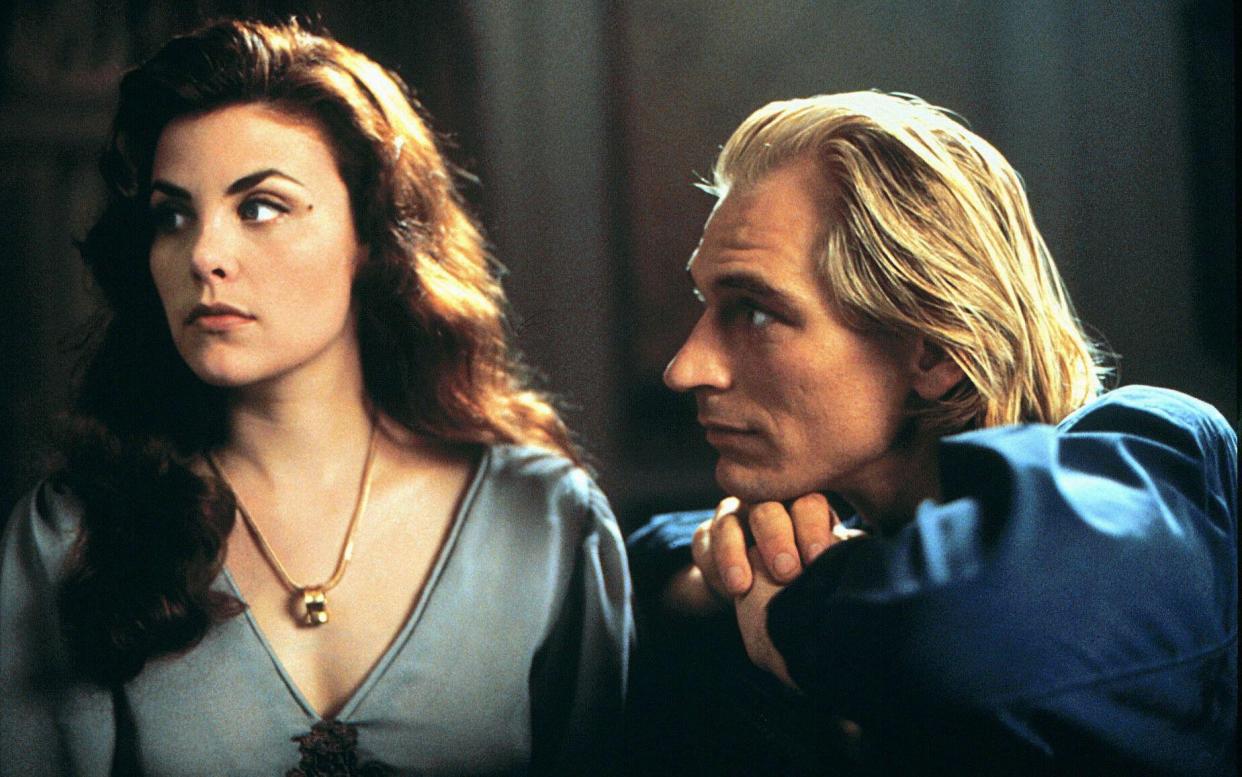
The late actor Julian Sands was performer of great range and subtlety, as comfortable acting in films by Fincher and Soderbergh as he was appearing in less challenging guest villain roles. There was considerably more to his career than his floppy-haired performance opposite Helena Bonham Carter in the EM Forster adaptation A Room with a View. Yet there was one picture in his distinguished career that he – and everyone else involved in it – might have cared to forget.
There are films that flop, and then there are films that flop. The former are usually forgotten over a couple of months, but the latter are talked about for decades, as a cautionary tale or the punchline of a joke. In most cases, they combine directorial (or star) hubris with hugely inflated budgets and an inevitable disastrous showing at the box office: think Heaven’s Gate, Cats or Battlefield Earth. And then there are the films that, although similarly unsuccessful, attract ridicule for quite different reasons, deservedly or otherwise. Sometimes, they enjoy second lives as cult films, but more often they remain unloved and unwatched, save for head-scratching as to their very existence. Still, not many have their director later comparing their film to Hitler, and saying that even the dictator deserved to be loved.
But then Jennifer Lynch’s Boxing Helena is a wholly unconventional picture. From its premiere at the Sundance Film Festival in January 1993, it has attracted both incomprehension and scorn. Its dark and perverse premise, about a surgeon amputating the limbs of the object of his lust so he can keep her a prisoner in a box, has come in for stinging criticism on the grounds of both credibility and taste.
Yet the on-screen horrors barely compare to a behind-the-scenes drama which saw the film not only become one of the most talked-about projects in Hollywood for entirely the wrong reasons, but hinted at the murky psychological trauma underpinning the life of one of the industry’s most renowned directors.
When Jennifer Lynch was born in April 1968, her father, the filmmaker David Lynch, did not do what most proud parents would do: open the champagne, or tell all his friends and family the happy news. Instead, he had nightmares, and sought to channel his primal fears into his art. His daughter was born with severely clubbed feet, which necessitated corrective surgery, and Lynch himself was hardly a natural or comfortable parent. His first wife Penny later said: “He definitely was a reluctant father, but a very loving one. Hey, I was pregnant when we got married. We were both reluctant.”
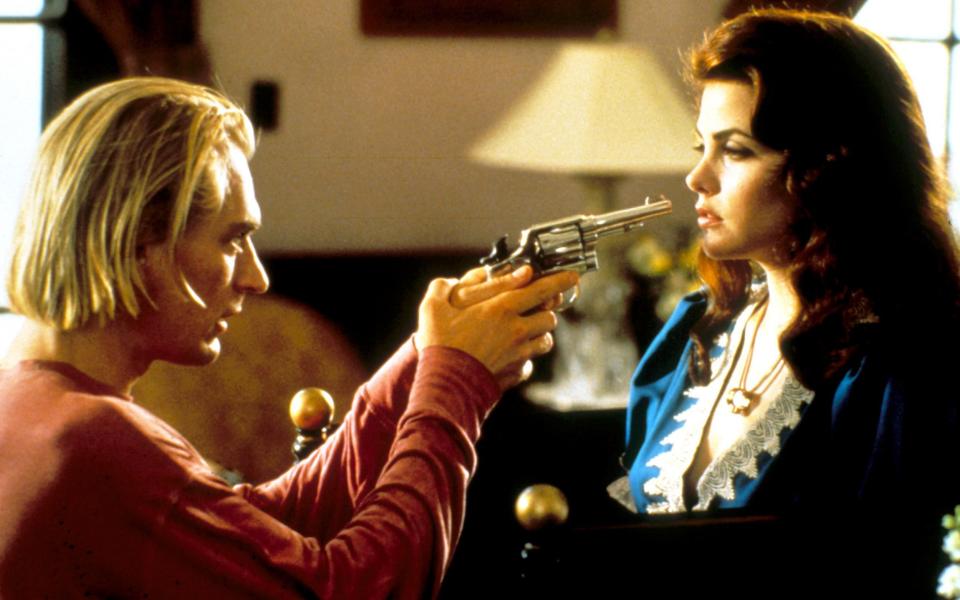
Lynch grew up in what her father would later call an atmosphere of “violence, hate and filth” in a troubled neighbourhood in Philadelphia. From an early age, she was involved in her father’s first feature, the surrealist horror film Eraserhead, which, in its depiction of a man who must care for a deformed child, had autobiographical overtones for both Lynch and his daughter. These may have been cathartic for its director, but Lynch could not absorb them until she was older. She bore her father no ill-will, later saying: “Memories [of making Eraserhead] are among some of the most formative of my life. It’s why I feel so at home on a film set. It really is my happiest place.”
Subsequently, she worked on the crew of the film that many consider David Lynch’s masterpiece, 1986’s Blue Velvet, and later commented that her upbringing had been one without strict discipline. “I wasn’t the kind of kid who had a curfew. It just didn’t happen in my youth. When we done doing whatever we were doing, if you were tired, it was time for bed.”
Yet one evening in Los Angeles, she was reading poetry, and was approached by film producer Philippe Caland. He told her: “I’m interested in having a woman write a story I have into a screenplay. It’s called Boxing Helena and it’s about a man who cuts a woman’s arms and legs off and puts her in a box because he loves her.” Lynch’s understated response was: “Well, that sounds kind of terrible.”
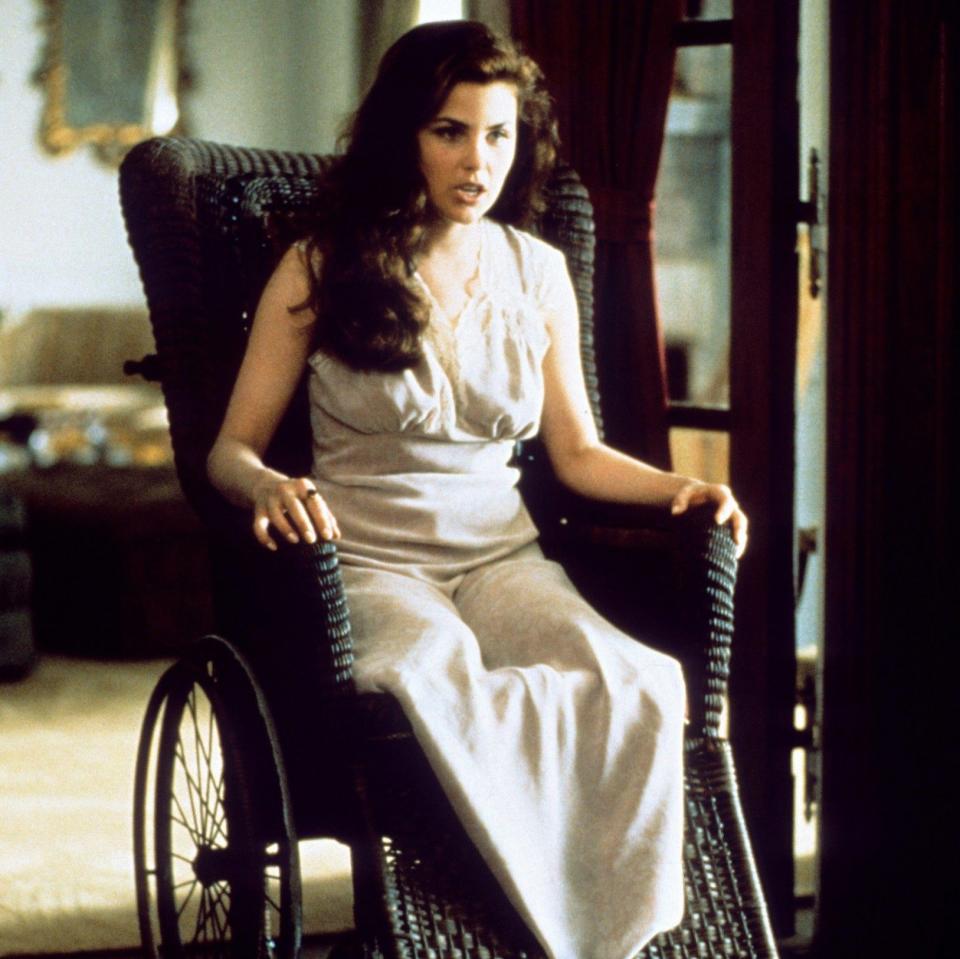
Nonetheless, Caland persisted, and Lynch was struck by the opportunity of taking a potentially macabre subject and turning it into something that could be both poetic and cathartic. As she said: “I asked him if I could take the idea and bring in some of the associations that I have with what this is really representing… my grandmother had a replica of the Venus de Milo in her living room and… it always struck me the way people looked at the Venus.
“They didn’t see her as broken, they saw her as beautiful. And it really made a huge impact on me. I thought I was broken and that maybe someday someone would find me beautiful. So this idea of a damaged boy who was in an obsessive situation who would try to recreate from his own view the one thing that didn’t hit him or abandon him was this armless, beautiful woman.”
While Lynch was writing what became the screenplay for Boxing Helena, she was involved in a near-fatal car crash, which almost paralysed her and resulted in her having three separate spinal surgeries years later to enable her to walk again. If she had not had enough trauma to channel into the film previously, she now produced a script that she described as “a fairy tale”.
She did not intend to direct it, having no previous experience in that area, but the combination of her family name and what seemed like the poetic potency of the story attracted Madonna, then at the peak of her fame. The singer and occasional actress agreed to star in the project, only to pull out shortly before filming was due to begin at the end of December 1990 because she wanted to appear in Evita instead. Although Lynch said: “I only thought five people would see it and I hoped that three would like it”, its producers hoped that a bankable star would ensure that it would make back what was originally intended to be a $9.6 million budget.
Enter Kim Basinger, then a bona-fide A-lister thanks to her recent appearance as the female lead in Tim Burton’s Batman. She was no stranger to envelope-pushing productions: famously, she had made her name by starring in Adrian Lyne’s erotic drama 9? Weeks and seemed to relish the opportunity to appear in a similarly provocative picture. She signed on in February 1991, but asked for script revisions, which mainly consisted of making the eponymous Helena “less of a b----”, in the words of the film’s co-producer and president of Main Line Pictures, Carl Mazzocone. It did not help that she changed agent, and that, according to Lynch, this new high-powered representative “refused to shake my hand and instead patted me on the head and said to my face, ‘She’s not gonna do your movie, little camper.’”
Basinger’s agent was proved correct, and the actress dropped out of the project. However, Mazzocone “just wasn’t going to be told ‘shut up and take it,’” as Lynch put it. The producer sued Basinger for breach of contract, citing collapsed foreign sales and financing, and claimed that he had lost his home and his car, as well as around $6.4 million, due to the film’s imminent collapse.
Lynch, though, bore no ill will towards her former star, commenting in 1992 that both Basinger and Madonna “couldn’t complete the process of making the picture because they hadn’t done enough investigating of the little girls inside themselves. Their bravery is not to be lessened, but perhaps they had not anticipated how difficult making this movie would be.”
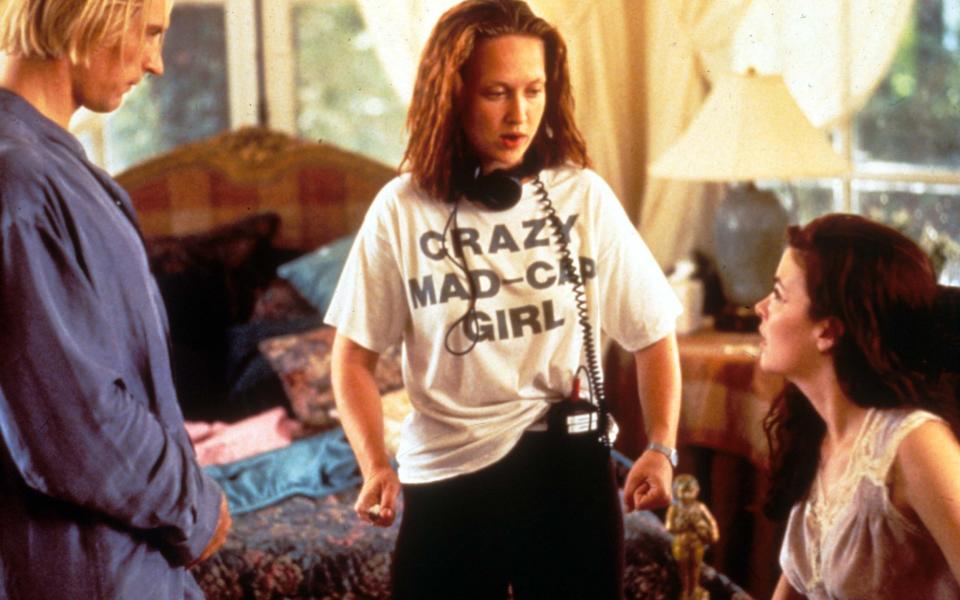
Basinger argued in court that she had never made a binding contract to appear in the film, and that she had pulled out because the film would feature “graphic” rather than “artistic” sex. But the jury took the side of the filmmakers and found against Basinger, awarding them $8.1 million in damages: an amount that forced the actress into bankruptcy, as well as having a negative impact on her career. (The amount was later reduced to $3.8 million on appeal.)
Yet Lynch remained determined to make the film, despite the attendant problems in its production, and so the Twin Peaks actress Sherilyn Fenn took the role of Helena, even as the film lost another lead actor, Ed Harris, who backed out of playing the part of the deranged surgeon Nick Cavanaugh: Harris’s reasons, understandably, were “I need to get on with my life.” He was replaced by Julian Sands, then best known for playing conventionally handsome romantic leads; Lynch described the character as “a wallflower Prince Charming” and said of Sands “every time Julian got too masculine, I had to tell him to bring it down, bless his heart”.
For his part, Sands, who had deliberately been trying to diversify away from floppy-haired Englishmen, was delighted to take on the role, commenting: “It was a wonderful few weeks working on what I would call… Well, it was a fairy tale in some ways. It was a love story, a romance, and something that I think is more resonant and relevant today – and seemingly more appreciated today – than when it was released.” He described working with Jennifer as “young but so smart, so sharp, and so attuned”, and never disowned his work on the film, commenting in a 2019 interview, “People still come up to me who’ve found it for the first time and find it very compelling and very moving. And I felt that way about it as well.”
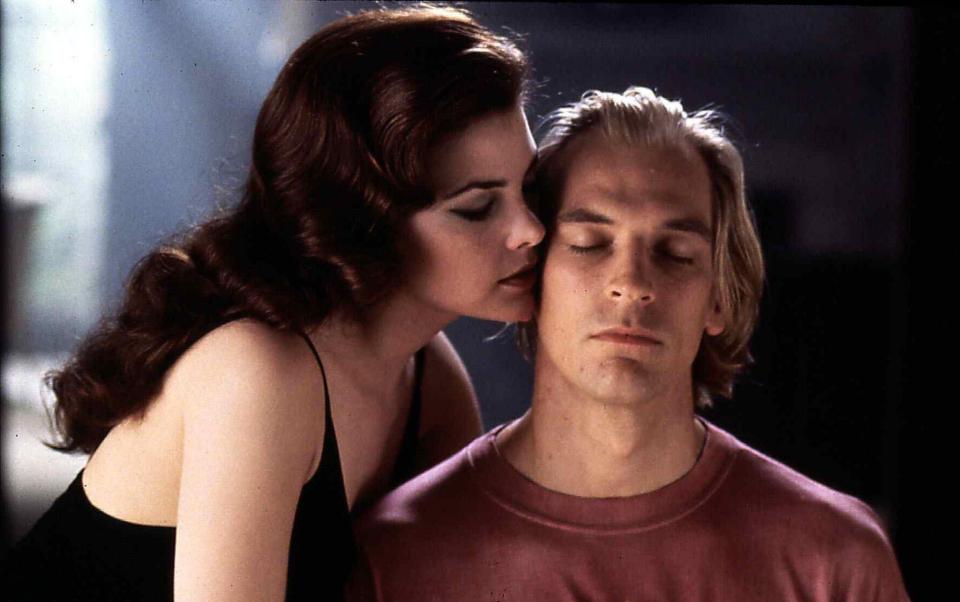
The film was finally completed, with a supporting cast including Bill Paxton and another singer-turned actor, Art Garfunkel, and premiered at the Sundance Film Festival to high anticipation, where it was nominated for the Grand Jury Prize. It was disastrous. As the critic Emanuel Levy snappily described it: “Prior to its world premiere at Sundance, Boxing Helena, the debut of David Lynch’s daughter Jennifer Lynch, was the hottest film in the festival; two hours later, the movie was dead.” It was all but laughed off the screen by contemptuous critics, who described it as amateurish and offensive in both its concept and its ineptitude. To her horror, Lynch was castigated by the National Organisation of Women, who reportedly said: “As a human being, [she] didn’t deserve ever to be loved again”.
Traumatised by the experience, she did not make another film for 15 years, when she returned with the dark Bill Pullman and Julia Ormond thriller Surveillance. It was better received, and the director has now settled into a comfortable career directing episodes of television dramas such as The Walking Dead and Agents of S.H.I.E.L.D. Nonetheless, her involvement with the notorious Boxing Helena has defined her life and career.
“I had to retreat and wonder why the reaction to a movie could be so violent and so vitriolic,” she said in 2009. “And there was hostility all over the world – there was no safe place. Whatever I got, I got in a personal way, directed right at me. I would have welcomed a serious discussion of the flaws and intentions of that film, but not a debate about whether I deserved to be alive.”
And she reflected to Vice that the perils of having a famous surname did not help her, either. “If a man had made it and it hadn’t been David Lynch’s child, I guarantee you no one would have batted an eye.” Perhaps everyone who rails against the unearned privilege of nepo babies might see Boxing Helena, and feel sorry for some of them instead.
